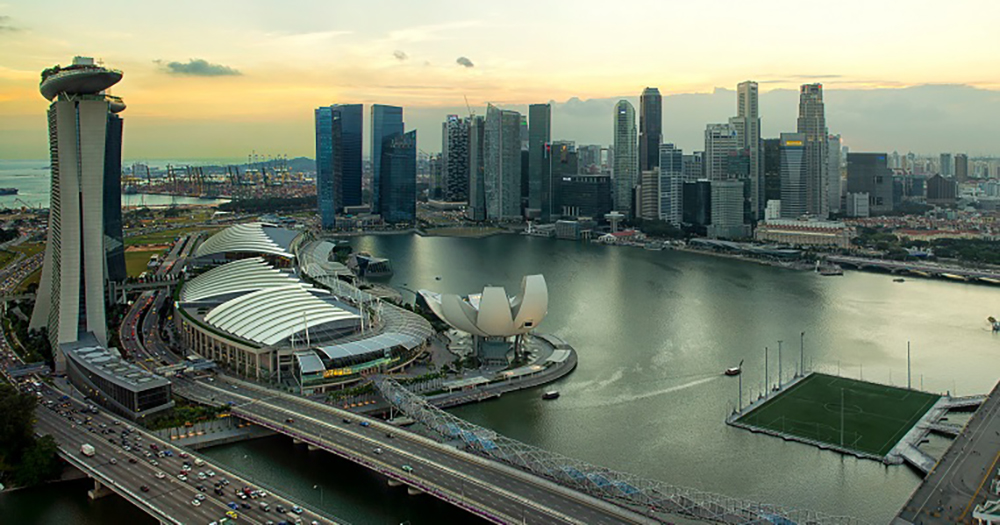Australian newspaper The Sydney Morning Herald has dug up some dirt on Singapore's land reclamation efforts by fingering our island republic for causing environmental problems for Cambodia.
The article, "Sand wars: Singapore's growth comes at the environmental expense of its neighbours", by Lindsay Murdoch on Feb. 26, 2016, accused Singapore of using some underhanded tactics to gain access to Cambodian sand. The three-time winner of the Walkley Award, Australia's top award for journalistic excellence, is a South-East Asia correspondent based in Bangkok.
Singapore's growing ambition
The piece stated that environmentalists estimate that more than 500 million tonnes of sand has been removed from the estuaries and coastal areas of the south-western Cambodian province of Koh Kong to Singapore over the past seven years, effectively destroying mangroves and the livelihood of the small fishing communities -- fishermen who do not receive compensation.
Singapore, which has grown by more than 22 percent in land size compared to during British colonial rule in the 1950s, have plans to import even more sand to artificially expand by 6,200 hectares by year 2030.
This turn of events has been made worse as a thriving sand smuggling trade has opened up as most of Singapore's neighbours have imposed bans on sand export.
Malaysia banned sand exports to Singapore as early as 1997.
Indonesia imposed a similar ban after several of its Riau islands disappeared.
Vietnam suspended dredging in 2009.
How Singapore gets her sand
The modus operandi for removing Cambodia's sand was described in relatively straightforward terms.
The Singapore government reportedly contracts private companies to import the sand.
This is believed to be so as Oliver Ching, a diplomat in Singapore's embassy in Phnom Penh, told activists in a letter in January 2016 that the "import of Cambodian sand to Singapore is done on a commercial basis... the Singapore government is not involved in these commercial transactions".
A check on the government directory indicates that Ching is the First Secretary (Political) of Singapore's Embassy in Cambodia.
Moreover, sand that is removed from remote areas in Cambodia are protected by allegedly corrupt navy and police, while government ministries responsible for mining turn a blind eye.
The sand is then hauled up by smaller ships to huge mother ships anchored further out to sea.
Moreover, The Cambodia Daily cited Commerce Ministry records showing the company responsible for sand dredging is partially owned by two daughters of Cambodia's strongman prime minister, Hun Sen.
After 1500 fishermen filed a joint complaint, his regime had announced a ban on sand dredging in 2009.
But the mining at Koh Kong was never disrupted as the the ban was only for river sand and not the sea.
Hun Sen recently told Cambodia's parliament that the mining is needed to facilitate navigation, reduce flooding and decrease river bank collapses -- a reasoning that baffled environmentalists.
The Cambodian opposition MPs have been demanding to know where the hundreds of millions of dollars from the dredging have gone.
Even details of how and from where the sand that ends up on Singapore's shore are considered confidential and to be a matter of national security.
However, the principal source of Singapore's sand in recent years has been from Myanmar, the Philippines and Cambodia.
Singapore responded to criticisms about importing Cambodia sand previously
In 2010, the government rejected a report by an environmental group that claimed that Singapore imported Cambodian sand illegally and without regard for the environment.
The Ministry of National Development (MND) said that they "are committed to the protection of the global environment" and "do not condone the illegal export or smuggling of sand, or any extraction of sand that is in breach of the source countries' laws and rules on environmental protection".
In The Straits Times report, MND also noted that contracts by Jurong Town Corporation (JTC) -- which engages land reclamation suppliers -- stipulates that the sand vendors have to act responsibly and it reminds them to observe source country regulations.
Singapore's sand desire is ironic considering the haze situation
The world's legal trade in sand is worth an estimated US$70 billion a year and involves at least 15 billion tonnes.
This has not taken into account the illegal trade that is worth billions more.
Such is the lucrative nature of sand that dozens of Malaysian officials were charged in 2010 with accepting bribes and sexual favours in exchange for allowing sand to be smuggled into Singapore.
[related_story]
According to the United Nations Environment Programme, Singapore is supposedly the largest importer of sand worldwide and the world’s biggest user per person.
However, Singapore is still nowhere as demanding for sand reclamation than Japan, Dubai and China.
This little silver lining, notwithstanding, the implications of this news was succinctly summed up in one of the quotes:
"Just like Singapore is unhappy at Indonesian forest fires, we need to tell them that Cambodia is also not happy with seeing how Singapore is directly responsible for the destruction of one of our most precious assets."
You can read the full article here.
Top photo via
If you like what you read, follow us on Facebook, Instagram, Twitter and Telegram to get the latest updates.
